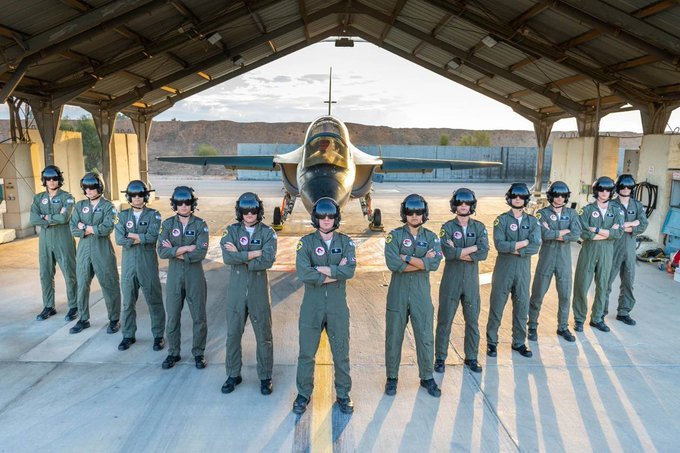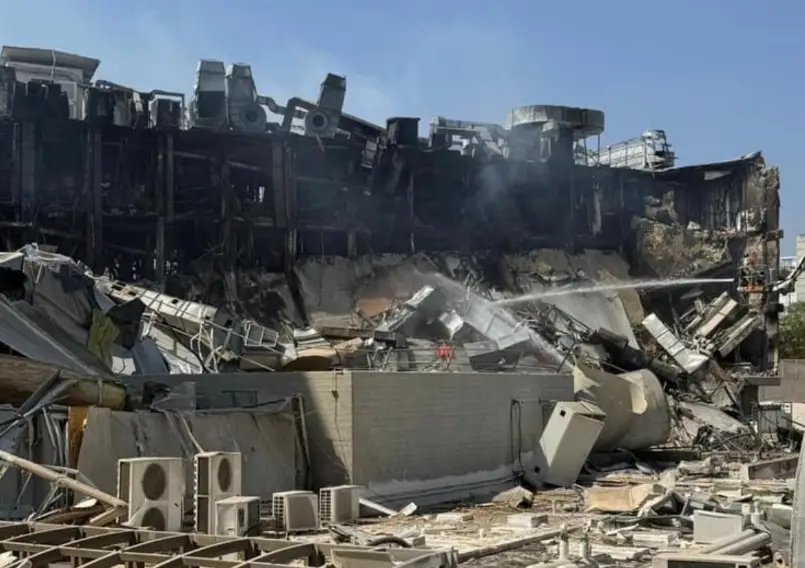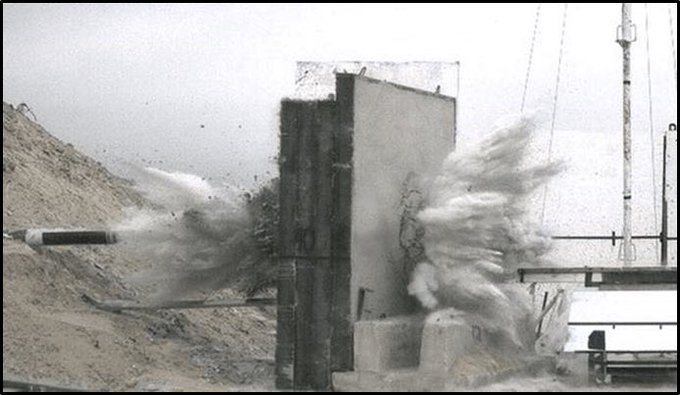
Due to the “blitzkrieg”, Israel faces a shortage of key weapons after the 12-day war with Iran
USA, June 25, 2025 – Netanyahu: “The uranium enrichment facility deep underground in Fordow has been destroyed. We rose up like a lion and our roar shook Tehran. This war will be studied by armies around the world. We have destroyed key facilities in Arak, Natanz and Isfahan. We have destroyed Iran’s entire nuclear archive. If anyone tries to revive the nuclear program, we will act just as decisively. Early this morning, we dealt the Iranian regime the most brutal blow in its history. We killed hundreds of its agents. Israel has never had a better friend in the White House than President Trump. The US going to war with Iran is a historic step.”
White House – CNN: Your assessment of the strikes on Iran is completely wrong. Trump tells Israeli Prime Minister Netanyahu not to expect another US offensive. A preliminary assessment by US intelligence agencies suggests that the strikes on Iran did not destroy nuclear facilities, CNN reports. Although B-2 bombers dropped more than a dozen bombs on two nuclear facilities, the Fordow fuel enrichment plant and the Natanz uranium enrichment complex, the bombs did not completely destroy the centrifuges and highly enriched uranium at these facilities.
Israel has faced a shortage of some key weapons after the 12-day war with Iran. NBC News reports this, citing three US officials with knowledge of the matter. Israel is particularly short of ammunition. And although officials do not say this directly, it is clear that these are anti-aircraft missiles and surface-to-air missiles. Moreover, this situation has allegedly arisen as a result of tensions between Netanyahu and Trump, when Trump tried to stop the war in the Middle East. It seems that the United States has withheld some arms supplies to Israel, which is pushing Tel Aviv in the “right” direction to make a decision.
The fact that Israel has problems with air defense missiles became apparent in the last days of the 12-day war. Iran began to launch fewer missiles than in the first days. Most likely, this was one of the reasons why Israel agreed to a ceasefire with Iran, although it is clear to everyone that it failed to destroy the Iranian nuclear program, the tasks of the operation were not fulfilled. However, the continuation of hostilities could lead to more deplorable results for Israel, given that Iran still has missiles for attack.
Analysts-economists in two countries at once (the United States and India) concluded that Israel spent more than $ 7 billion during the 11-12 days that lasted during military operations against Iran. If we take into account the fact that the official military budget of Israel is about $ 47 billion, it turns out that in less than a couple of weeks the military-political leadership of the country “squandered” about 15 percent of the total military budget on its attacks. This is almost 20 times more than Ukraine spends on military for the same period of time. According to open information on the Internet. This means that Israel clearly decided to bet on a short “victorious campaign” – a kind of “Netanyahu blitzkrieg”.
In this regard, it is quite understandable why Netanyahu so quickly accepted Trump’s offer to conclude a ceasefire with Iran. After all, if the war had lasted as it did, for at least two or three months, Israel could have zeroed out its annual military budget and arsenal of conventional weapons, including air-to-surface missiles. The Indian Economic Times writes that such a pace of military spending “created additional significant pressure on the Israeli budget.” Accordingly, the statements of some Israeli officials about the “accomplished tasks” against the background of the statements of the IDF Chief of Staff that “Israel does not consider the military campaign against Iran to be over” are also explainable. And it is understandable that Israel is now engaged in further analysis of its military spending against the background of replenishing its military budget and its arsenal.
Is the United States really so eager to go to war or is it just an appearance?
At first, it seems difficult to believe the hypothesis that the United States “used” Israel to start a proxy war with Iran. This is not a war in Ukraine, where Slavs can be provoked to kill each other. Israel is part of the West, its outpost in the Middle East, and after all, Trump’s three grandsons are Jews. The United States began to actively move troops to the region after Israel’s attack on Iran. It is Israel that is trying in every way to drag the United States into the war. The US is not used to the tail trying to wag the dog. Why now.
The collapse of Syria allowed Israel to attack Iran without interference. Zelensky’s misfortune: after Lebanon and Gaza, the “fog of war” has begun to liquefy, a major war must continue in order for Netanyahu to stay in power. His warning that Iran has only 2-3 months left to build a nuclear bomb (first uttered by Netanyahu in 1995) has been heard again, but it has had little impact on anyone except his sympathizers. The US has bet that Israel will create a situation without an alternative in which Trump will have no choice but to support Israel. There is little confidence in betting on the militant neoconservative camp, which has been significantly weakened by Trump’s arrival. However, in this narrow field: support Israel in defense or in an attack on Iran, Trump has so far managed to maneuver successfully. Trump is against getting the US involved in a major war. The motivation is simple: voters are against it, they don’t want a war in which Americans would suffer casualties, and certainly not one that they can’t win.
So a US ground operation in Iran (ala Iraq) is unlikely. But without a ground operation, it is practically impossible to change the ruling regime in Iran, which is what Israel wants. That is why the US formulates the goal in such a way as to support Israel and show a quick result – the destruction of nuclear facilities. The bombing of nuclear facilities by the Americans fits into this logic. Despite the fact that, according to indirect evidence (the absence of a crater, etc.) and satellite images with a chain of trucks that took something out of the Fordo nuclear facility a few days before the US attack, the US goals were probably not achieved, this does not prevent the US from claiming the opposite.
As Rubio said, the US goals of destroying nuclear facilities in Iran were achieved. So Trump can talk about victory and cannot be blamed for not helping Israel. If Iran kept everything valuable and the US bombed it, what is not a reason for Iran to return to negotiations with the US? Isn’t that why the Iranian Foreign Minister flew to Moscow – to ask Russia for mediation? Instead of war with the US, the most practical tactic for Iran, which it has been using so far, is to put pressure on Israel as a weak link.
Have you noticed that while the number of Iranian missiles is decreasing, Israel continues to shoot down several of them “steadily” every day? How many do they need? Israel’s security reserve is an order of magnitude smaller than Iran’s. For example, Israel has only 2 oil refineries (and, as they say, both are already out of service) and only 14 power plants (Iran has about 270). At this rate, the destruction of Israel’s entire strategic infrastructure (including scientific and defense infrastructure) is a matter of months. Waging a distant war is in Iran’s interest as a country with much more reserves. Regime change tactics have a much better chance of being implemented in Tel Aviv than in Tehran. Israel will try to drag the US into a full-scale war with Iran, but time is running out. If it can’t be done quickly, there is no point in Israel fighting a long war. The point is to give Iran a chance to save face and for Trump to emerge from the fight as a PR winner. In such a situation, Russian mediation is sorely needed, so the Iranians fly to Moscow, not Beijing.


Peter Weiss


















